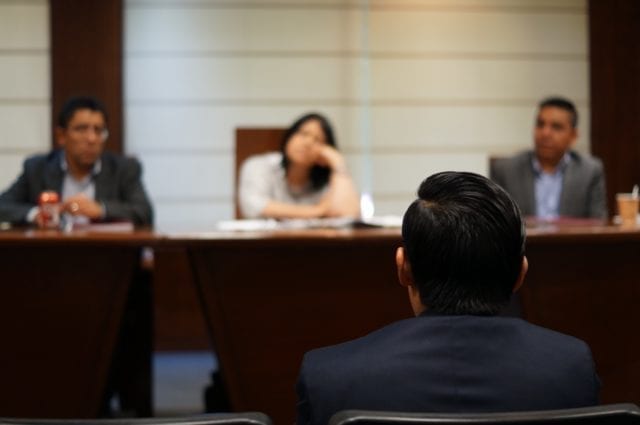
Psychologist of the Month: Why Elizabeth Loftus is Out to Change Your Mind About What You Remember

When we think about famous psychologists, we often think of older men from long ago who did experiments with pigeons or who talked about peoples’ relationships with their mothers. But, like any scientific discipline, psychology is a continually evolving field full of dedicated clinicians, researchers, and academics who are searching for new truths to uncover and new ways to prove or disprove the beliefs we have held for so long.
One of the most exciting areas of modern psychologic research is in the field of memory and recall, and there are few psychologists more important to this field than Elizabeth Loftus.
Early Work on Memory & Recall
Dr. Loftus, who currently holds the position of affiliate professor of psychology and law at the University of Washington, has been at the forefront of research on human memory and recall for nearly 50 years, studying how memories are formed and how recall of these memories can be affected over time.
Her research in this area has led to a number of awards and honors, as well as a place as the highest-ranked female on the list of 100 most influential psychological researchers of the 20th century from the Review of General Psychology.
After receiving her Ph.D. from Stanford University in 1970, Loftus went on to begin her first academic appointment at the New School for Social Research in New York City, studying the semantic information in long-term memory.
Dr. Loftus quickly realized that research in memory and recall could have a much more significant social impact in other areas, and in 1973 accepted a position as an assistant professor at the University of Washington and began researching how memory affects real-world situations.
One of her earliest studies focused on understanding whether eyewitness memory can be altered after the fact by information supplied by outside sources. This study built on previous research which had established that memories were constructions created using past experiences and other external manipulations, and not entirely accurate representations of events. These early studies provided clues that the way in which questions are presented, including the wording of questions, can affect how a person recalls events.
Building on these findings, Elizabeth Loftus began looking at what other ways misinformation could be presented to a person, the effect this misinformation has on recall, and how this erroneous recall can have serious, real-world consequences. This research led to the development of the paradigm known as the Misinformation Effect.
The Misinformation Effect & Eyewitness Testimony
Through her research, Elizabeth Loftus has demonstrated the pliability of human memory and recall. She has shown how memories can be affected by exposure to incorrect information, leading questions, or any number of sources of false information.
The Misinformation Effect is an example of what is known as retroactive interference, a phenomenon where the information presented in the present or future can affect the ability of a person to retain previously learned information correctly. An example of retroactive interference is when you have a telephone number for a long time. When you switch to a new number, after memorizing the new number, it becomes much more difficult to remember the older number.
Her research, and that of her colleagues in the field of memory and recall, has changed our understanding of how memory works and how long-term memories are not fixed, unchanging ideas stored forever in a frozen state waiting to be remembered, but are, in fact, mental constructs based not only on what happened at the time, but what we have learned and experienced in the time since the event has passed.
Our memories are affected by what we learn from others who recount their versions, by the expectations of those who want to hear what we remember, and from our own mind filling in gaps in our memory with information we received after the fact.
How Elizabeth Loftus’ Work Continues to Impact the World

The Misinformation Effect has powerful and dangerous implications for many areas of society and has generated hundreds of additional studies exploring the phenomenon.
There is likely no area where memory and recall, and the ways in which the Misinformation Effect can alter those memories, play a more critical role than in the legal field in general, and in eyewitness testimony in particular.
Much of how our modern legal systems around the world function is based on the testimony of witnesses who experienced the events. The fact that trials and questioning can happen months or even years after the events occurred can leave witnesses open to significant alterations in how they recall the events. And the fact that there are multiple sides invested in specific outcomes, there is plenty of opportunity for incorrect or incomplete information to seep into the recollections of eyewitnesses, whether they intend to or not.
One way this misinformation can have an unintended effect is when the witness identifies a suspect. When presented with a series of photographs, or a lineup of individuals, an eyewitness may read body language and other subtle clues from the interviewer and select the response the questioner is hoping for. This is similar to Hanz, the horse that could do math. Though the horse could not actually do math, when asked to add two numbers, he would tap his hoof to count, stopping once he reached the correct answer. He did this by reacting to the expressions of the questioner, who would likely show signs of excitement as the horse got close to the correct answer.
In this same way, the eyewitness, who may only remember vague details such as the color of the clothes, the hairstyle, and other generic information, may look at the lineup of potential suspects and unconsciously select the person for whom they receive the strongest body-language reaction from the questioner.
Similarly, the way questions are presented in questioning can affect the recall of witnesses. For example, a neutrally-worded question such as “what was the person who robbed the store wearing that day?” will not get the same information as a leading question such as “Other witnesses have told us that the person robbing the store was wearing a red sweater and blue pants, is that what you remember?” The second of these questions is potentially providing incorrect information, which may lead the witness to misremember the events based on both the expectations of the questioner and the supposed recollections of other witnesses.
Conclusion
Dr. Elizabeth Loftus has spent her entire career studying the way memory and recall works and has been a crusader for ensuring the misinformation effect is understood within the legal community. Her research has changed what we know about memory and continues to play a role in understanding the complex systems humans use to understand and remember their world.












